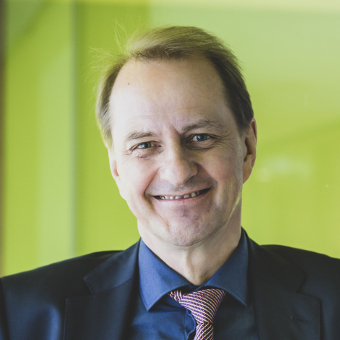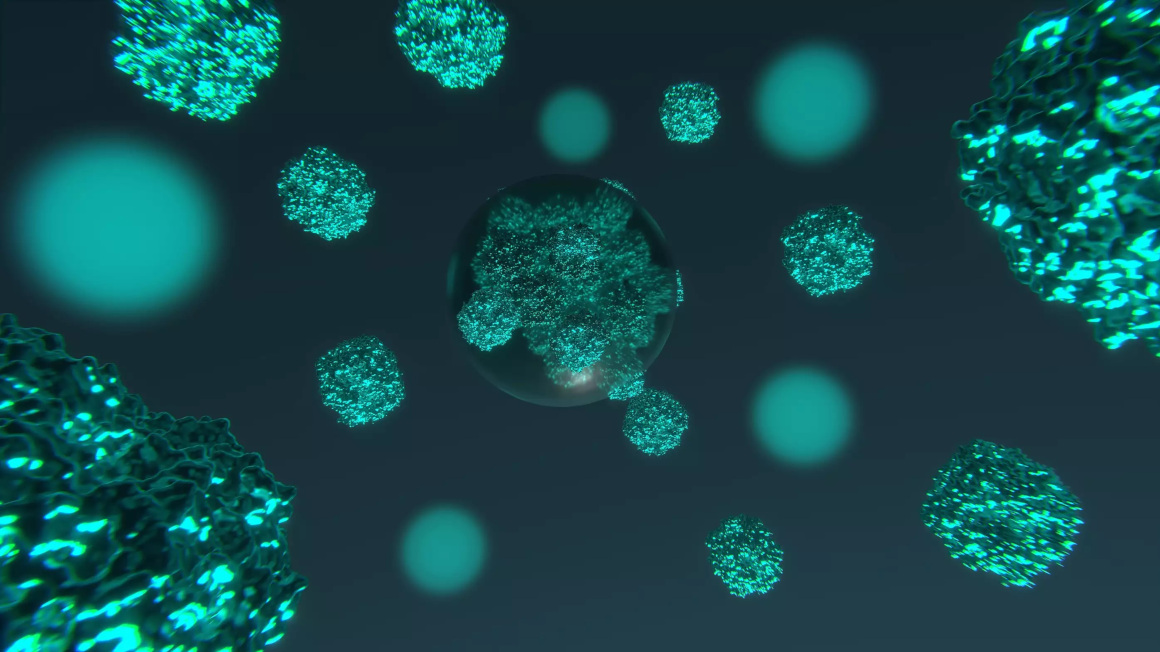"Bioeconomy is the core of sustainability policy"
Dirk Messner
Profession:
PhD Political Scientist
Position:
President of the Federal Environment Agency

Profession:
PhD Political Scientist
Position:
President of the Federal Environment Agency

Sustainability researcher Dirk Messner has been President of the Federal Environment Agency since January of this year. In an interview he talks about the opportunities and challenges on the way to a bio-based economy, the corona pandemic and the value of global networking.
Climate change and species extinction are the greatest challenges of our time. Reducing greenhouse gas emissions is a task that Dirk Messner, as President of the Federal Environment Agency (UBA), wants to take up. The renowned political scientist and sustainability researcher sees the bioeconomy as an important driver for moving away from fossil fuels and using resources sustainably. In this context, bioeconomic change should also be viewed critically at all times.
What are today's top issues and the most pressing challenges that the Federal Environment Agency is addressing?
The 2020s are a decade of opportunity. We can now transform our society in such a way that we can manage without fossil fuels by the middle of the century. In terms of greenhouse gas emissions, we are heading for tipping points in the Earth system that we could not have imagined 15 years ago. The time window is getting smaller and smaller - but I am still optimistic that we can make it. The bioeconomy also plays an important role here, of course.
As President of the Federal Environment Agency and sustainability researcher, where do you see opportunities and challenges on the way to a bioeconomy - here in Germany and globally?
The bioeconomy affects the core of environmental and sustainability policy, both nationally and globally. It can help us shift the material basis of our prosperity in a sustainable direction: away from fossil, non-renewable resources and towards renewable ones. Bioeconomy also means recycling valuable materials and using them in a circular fashion. However, one challenge remains: the bioeconomy must not compete with food production. If we pollute our soils or damage biodiversity even more than we do today, for example in agriculture, nothing is gained. Biogenic raw materials are also not in abundance; we should value them and use them sensibly.
As a political consulting authority, where can the Federal Environment Agency set the course in the implementation of the National Bioeconomy Strategy?
We must take a critical look at the opportunities and risks of a change to a bio-based economy. This requires us to continuously evaluate the situation and show policymakers ways to reduce risks and maximize opportunities. We have already conducted quite intensive research into the question of when bioeconomic applications are also sustainable and have derived concrete recommendations. Now the whole issue must be taken up on a broad front - and civil society must be involved in the discussion. This is why we support, for example, the Bioeconomy Action Alliance through our support for associations.
In your view, what effect does the Corona crisis have on issues such as sustainable development and environmental protection?
The effects of the pandemic are new, complex and by no means all assessed. However, I am confident that positive impulses for transformation will be derived from it. In any case, I see many indications that the pandemic has rather led to a helpful, critical self-reflection of economic activity in Germany. Support for a "green" reconstruction of the economy is encouragingly high. Sustainable ideas are also being integrated into reconstruction programs in many other countries. This is a very positive development - unlike after the economic crisis, where old, false patterns were re-established. From a global perspective, I am concerned that we are losing sight of the poorer countries. The socio-economic discrepancy between the global South and rich countries like us is being exacerbated by the Corona crisis. This threatens massive setbacks in the fight against poverty and hunger.
Monitoring activities are now also being introduced for the bioeconomy. In your opinion, how valuable are such monitoring activities - also in other areas, such as recording biodiversity in agricultural landscapes or the use of chemicals?
Monitoring can be an early warning system, i.e. it can answer the question of whether a particular policy field is developing well. However, to do this, it is also necessary to strike the right balance between the key aspects of opportunities and risks. I currently see a need to readjust the socio-ecological risks in bioeconomic monitoring, but we are working on that. A monitoring system will only really guide the actions of policymakers when it is provided with concrete, measurable and binding targets. There is still considerable need here.
In the build-up to the Global Bioeconomy Summit 2020: How important do you think it is to exchange views on the bioeconomy on a global level?
As very important! A sustainable bioeconomy policy must take into account the global distribution dimension and must not exacerbate inequality in resource use, which may be a threat without effective global governance. This means that a strong political framework and appropriate institutions are needed, both nationally and globally, to ensure that the conditions for a sustainable bioeconomy are met. Unfortunately, both of these are currently still lacking.
Interview: Beatrix Boldt/Philipp Graf


